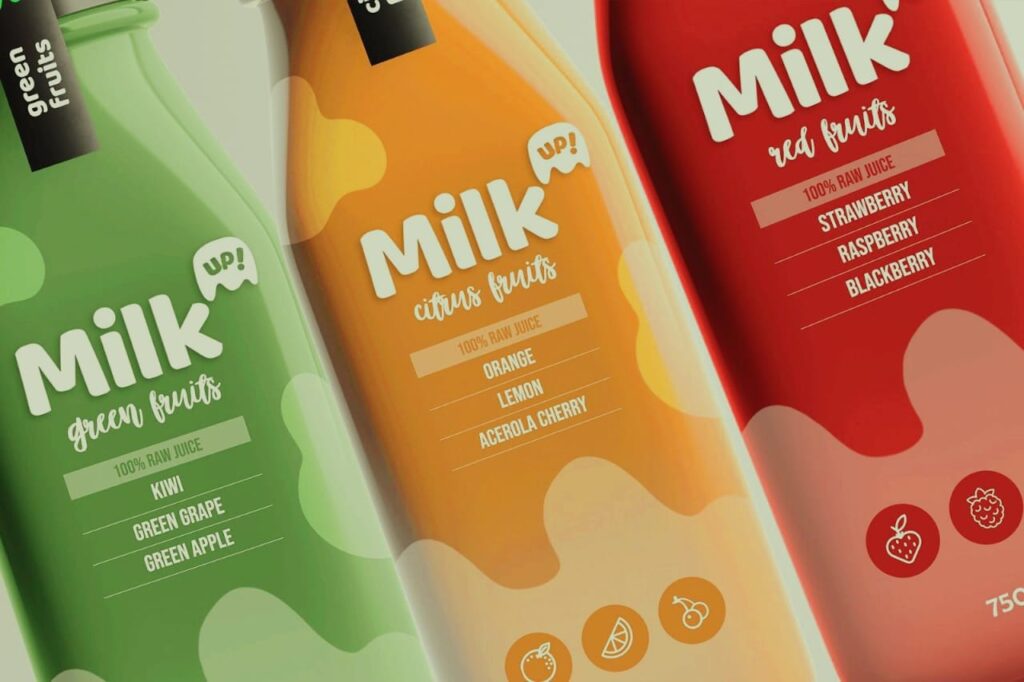California’s Department of Public Health has issued a strong warning to residents following the detection of bird flu in a batch of raw milk distributed by Raw Farm, LLC. The milk, which was being sold in various California stores, has now been recalled by the company at the state’s urging. Consumers are advised to avoid drinking this specific batch of raw milk due to the potential health risks associated with the virus.

The virus was discovered during routine testing of cream-top, whole raw milk from Raw Farm, LLC. The affected batch has a “Best By” date of November 27 and was recalled as a precautionary measure. Fortunately, no illnesses have been reported so far. However, the California Department of Public Health (CDPH) emphasized the importance of caution, citing the ongoing spread of bird flu in dairy cows, poultry, and isolated human cases. They advised against consuming the affected raw milk to minimize potential risks.
Unlike pasteurized milk, raw milk is not subjected to high-temperature heating, a process that kills harmful bacteria and viruses. This lack of pasteurization can make raw milk a potential carrier for various pathogens, posing significant health risks. According to the Centers for Disease Control and Prevention (CDC), consuming raw milk can be particularly dangerous for vulnerable groups, including young children, pregnant women, the elderly, and individuals with weakened immune systems. Since pasteurization became standard in the early 1900s, the process has drastically reduced the incidence of milk-borne illnesses.
The California Department of Public Health has highlighted several bacterial infections that have been linked to raw dairy consumption, including Salmonella, Listeria monocytogenes, toxin-producing E. coli, Brucella, and Campylobacter. These pathogens have all been associated with severe health complications in individuals who consume unpasteurized dairy products.
Notable figures have voiced opinions on raw milk consumption. Robert F. Kennedy Jr., recently chosen by President-elect Donald Trump to head the Department of Health and Human Services, has been a vocal supporter of raw milk. He recently criticized the Food and Drug Administration (FDA) for its “aggressive suppression” of raw milk sales. Additionally, actress and wellness advocate Gwyneth Paltrow mentioned on a podcast earlier this year that she regularly drinks raw cream from Raw Farm in her coffee, the same brand now under scrutiny.
The presence of the virus was initially detected by the County of Santa Clara Public Health Laboratory. A sample of raw milk purchased from a retail outlet tested positive for bird flu during routine testing. This step acts as a second layer of consumer protection, and the results were later confirmed by the California Animal Health and Food Safety Laboratory System.
Following this discovery, the California Department of Food and Agriculture (CDFA) conducted further tests at Raw Farm’s facilities, but no additional signs of bird flu were found. To maintain safety, the CDFA has committed to testing raw milk samples from the state’s milk banks twice weekly to ensure no further contamination.
On Sunday, Raw Farm, based in Fresno County, announced the voluntary recall of the affected batch, identified as Lot ID #20241109. In a statement, the company asserted that all their internal tests, as well as official tests conducted by CDFA, came back negative for the virus. Raw Farm also clarified that there have been no reports of illness connected to the recalled batch.
Despite the company’s assurance, health officials remain cautious. The CDPH advised that consuming or inhaling raw milk contaminated with the bird flu virus could lead to illness. Even handling the raw milk and then touching the face without proper handwashing could result in an infection.
The warning follows a recent uptick in bird flu cases within the state. Since early October, California has recorded 29 confirmed human cases, primarily linked to dairy cows. Out of these, 28 cases involved direct contact with infected cattle, leading to mild symptoms such as eye infections. None of the affected individuals required hospitalization, and the CDPH confirmed that no person-to-person transmission of bird flu has occurred in California or elsewhere in the United States.
Health officials stress the importance of hygiene when handling any raw dairy products, especially in light of these recent developments. Washing hands thoroughly after touching raw milk or dairy products, keeping raw milk containers sealed, and avoiding the consumption of raw dairy are key recommendations to minimize risk.
The rise in bird flu cases has raised concerns not only for consumers but also for dairy producers across the state. Many are doubling down on biosecurity measures to ensure their livestock remains unaffected, especially as raw milk enthusiasts continue to seek out unpasteurized options despite the risks. The CDPH will continue to monitor the situation closely and issue further guidance as needed.
To ensure public safety, experts advise opting for pasteurized dairy products, which undergo a rigorous process designed to eliminate potentially harmful pathogens. This precaution is particularly crucial for at-risk groups, including children, pregnant women, the elderly, and those with compromised immune systems. Pasteurization has played a significant role in decreasing the prevalence of foodborne illnesses linked to dairy consumption, making it the safer choice for most households.
As health officials and dairy producers work to contain the spread of bird flu, California’s recent discovery underscores the ongoing debate between the perceived benefits of raw milk and the associated health risks. With advocates and opponents both voicing strong opinions, the conversation around raw milk is unlikely to fade anytime soon.
For now, public health agencies continue to encourage consumers to prioritize safety, emphasizing that pasteurized options remain the best way to avoid potential health hazards linked to raw dairy products.
